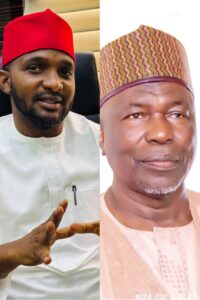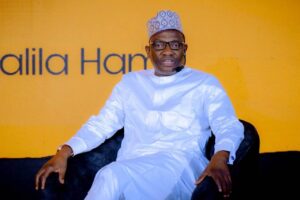
By Omar Muaz
To promote sustainable development, in any given country, there’s a need of quality education. To give an example, when France suffered from its moral crisis, a crisis reflected in the turmoil, violence, and discontent pervading French society, they lagged well behind Germany in technological education but was on par with Britain and the United States. Through education, after intellectuals debated the nature of the crisis and possible cures, around 19th century, a number of higher education grandes écoles were established to support industry and commerce (Eric Mauric, 2007) i.e the sustainable development of the country.
Education is the process of imparting and acquiring knowledge and skills about ideas, values and concepts, borne out of learning practice and experience. The latter can be imparted to or shared with others, particularly the younger generations, through formal and informal institutional arrangements such as schools. Knowledge so acquired whether in humanities, liberal arts, science and technology, are subsequently applied to sustain present and subsequent generation in their everyday life. Therefore, every human endeavor requires one form of knowledge or another. It is the proper nurturing, transmission, and application of such knowledge that guarantees the development and sustenance of every society from day to day (Abiodun, 2002).
Development means “improvement in country’s economic and social conditions”. More specially, it refers to improvements in way of managing an area’s natural and human resources. In order to create wealth and improve people’s lives. Dudley Seers, British economist, while elaborating on the meaning of development suggests that while there can be value judgements on what is development and what is not, it should be a universally acceptable aim of development to make for conditions that lead to a realisation of the potentials of human personality.
Not only a scholar has attempted to define development. For instance, Marsh (1996) conceived the concept as huge changes in the lives of people and societies. These changes relate to the astronomical record of economic growth and technological breakthrough since the and of the 19th century. He further sees the concept as a progression from one condition to another. That is from underdevelopment to development; in simple terms, of modern values, thoughts, ideas and cultural practice.
The concept of sustainable development emerged as a response to a growing concern about human society’s impact on the natural environment. The concept of sustainable development was defined in 1987 by the Brundtland Commission (formally the World Commission on Environment and Development) as ‘development that meets the needs of the present without compromising the ability of future generations to meet their own needs’ (Brundtland, 1987). This definition acknowledges that while development may be necessary to meet human needs and improve the quality of life, it must happen without depleting the capacity of the natural environment to meet present and future needs.
For the purpose of this discussion —education as a prime fountain of sustainable development in Nigeria —the functionalist perspective on function of education shall be adopted as it is important in stressing out the role of education in for promoting sustainable development in Nigeria, not the conflict perspective which emphasizes on the inequalities of educational opportunities and the need for social change.
The functionalist perspective, on the function of education, focuses on the ways that universal education serves the needs of society. Functionalists first see education in its manifest role: conveying basic knowledge and skills to the next generation (Cliffs Notes, 2020).
The model argues that education rational sort and select students for further high status positions thereby meeting society’s needs for talented and expert personnel. The theory further stress out that the function of education in society is in terms of transmission of knowledge, bestowing status, cultural transmission, promoting social and political integration, maintaining social control and serving as agent of social, economic and technological changes (Schaefer, 1989).
Education in every sense is one of the fundamental factors of development. No country can achieve sustainable economic development without substantial investment in human capital. Education enriches people’s understanding of themselves and world. It improves the quality of their lives and leads to broad social benefits to individuals and society. Education raises people’s productivity and creativity and promotes entrepreneurship and technological advances. In addition it plays a very crucial role in securing economic and social progress and improving income distribution (Ozturk, Ilhan, 2001).
Education guarantees lifetime income; it promotes peace and reduces drop-out rates from schools and colleges and encourages healthy competition. Many children dropout from colleges as they are not aware of the advantages of college education. Education helps in making the right decisions at the time of conflicts (Kudroli Foundation) as when scholars debated on the ways to put to halt the series of war in France, Emile Durkheim, the French educational sociologist, sought and established a new, scientific sociology that was capable of helping France overcome the war.
Historically speaking, before the British arrived in the early nineteenth century, there were two major types of education in Nigeria. In the Islamic north, education was strictly religious in nature. In each Muslim community, a mallam drilled children as young as five years old in the teachings of the Qur’an and the Arabic alphabet. During the colonial era, larger cities set up more expansive Islamic schools that included subjects such as math and science. Formal, Western-type of education was introduced by British missionaries in the 1840s. The Anglican Church Missionary Society (CMS) started several schools in the mid-1800s (Fafunwa, 1974).
In Nigeria, it is high time to be understood that education and development go hand in hand. The role of education in developing countries is a very important one as lack of education causes poverty and slow economic development of a country. Despite that in Nigeria, corruption and insecurities setback the development of the country as they have negative impact on virtually all aspects of life including education, access to it can improve the economic and financial lifestyle of citizens and determine the prospects of future generations in Nigeria.
Education in Nigeria is an instrument, per excellence, for affecting national development. Education remains the prime source of national and sustainable development since when the government realized that it for the benefit of all citizens, the country’s educational goals shall be clearly set out in terms of their relevance to the needs of the individual and those of the society, in consonance with realities of our environment and the modern world (NPE, 4th Edition, 2004).
In Nigeria’s philosophy of education, it is believed that, education is an instrument for national development; education fosters the worth and development of the individual, for each individual’s sake, and for the general development of the society; and there’s need for functional education for the promotion of a progressive, united Nigeria. Nigeria’s philosophy of education, as it stands the fountain of sustainable development of the country, should be based on; the development of the individual into a sound and effective citizen, the full integration of the individual into the community and the provision of equal access to educational opportunities for all citizens of the country (National Policy on Education, 2004).
It’s doubtful if there would be any development in the country where its education suffers from the low budgetary allocation to education, visible decay or total infrastructures, discontinuation of services, commercialization of other services, policy of cost recovery, and revenue generation all of which seems to be the features of educational system in contemporary Nigeria (Alubo, 1999). Educational sector continued to attract low budgetary allocation since the recession period in the 1980s. This is evidenced at both federal and state levels. This policy no doubt is part of the overall de-emphasis on non-productive aspect of the economy. It is also apparent that existing facilities are in states of acute disrepair through deliberate and systematic neglect.
Unless the egalitarian approach to education, that is, equal educational opportunities by all groups in the society. Egalitarian approach would imply placing emphasis on equal access in which identifiable underprivileged groups, like the poor, nomadic groups, rural dwellers, etc are not denied education and increase in budgetary allocation to education, that is, to address the obvious lapses in the educational sector over the years, adequate fund must be made available and must be expanded appropriately as the major problem besetting educational sector in Nigeria in particular, as seen by many researchers, is low funding (Yusuf, Noah) are met, there’ll always be constraints impeding sustainable development in the country.
Moreover, improving girl child education, as it is universally believed, the extension of girl-child education has been a cornerstone of every development plan. This is in view of the role of women to the development of their community (World Bank, 1997). More especially in the northern Nigeria, education for the girl child must necessarily a priority in efforts to expand educational level of the citizens. And hitherto, among the major tools of development of any nation, society or region is science and technology. They are the pillars of well being of every nation as well as the source of social and economic development (Abiodun, 2002). Therefore, emphasis on science and technological education must, in order to have national and sustainable development in Nigeria, be put.
Omar Muaz writes from Faculty of Education, ABU Zaria.


